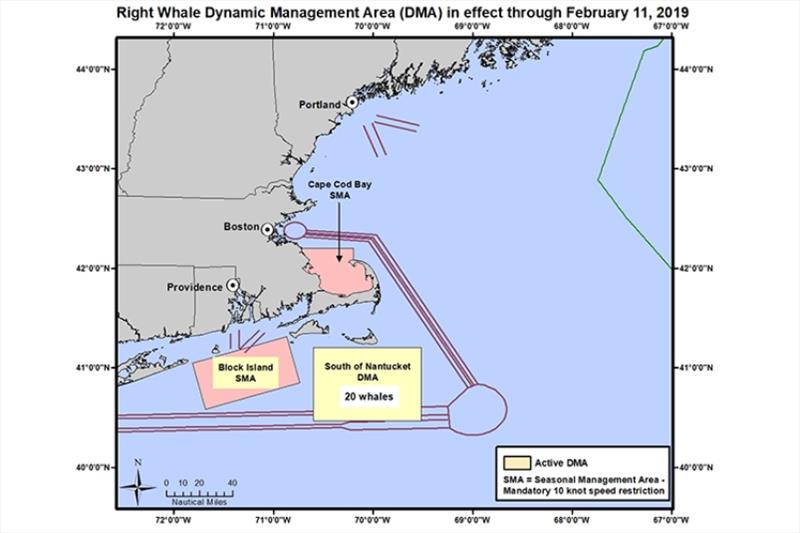
Watch out for whales south of Nantucket
by NOAA Fisheries 29 Nov 2018 14:01 UTC

DMA is in effect through February 11, 2019 © NOAA Fisheries
The voluntary vessel speed restriction zone (Dynamic Management Area - DMA) established south of Nantucket on January 15 has been extended to protect an aggregation of 20 right whales sighted in this area on January 27.
This DMA is in effect through February 11, 2019.
Mariners are requested to route around this area or transit through it at 10 knots or less.
Nantucket DMA coordinates:
- 41 12 N
- 40 28 N
- 070 36 W
- 069 31 W
Right whales are migrating
North Atlantic right whales are on the move along the Atlantic coast of the U.S. With an unprecedented 20 right whale deaths documented in 2017 and 2018, NOAA is cautioning boaters to give these endangered whales plenty of room as they migrate south. We are also asking commercial fishermen to be vigilant when maneuvering to avoid accidental collisions with whales, remove unused gear from the ocean to help avoid entanglements, and use vertical lines with required markings, weak links, and breaking strengths.
Right whales in trouble
North Atlantic right whales are protected under the U.S. Endangered Species Act and the Marine Mammal Protection Act. Scientists estimate there are slightly more than 400 remaining, making them one of the rarest marine mammals in the world.
In August 2017, NOAA Fisheries declared the increase in right whale mortalities an "Unusual Mortality Event," which helps the agency direct additional scientific and financial resources to investigating, understanding, and reducing the mortalities in partnership with the Marine Mammal Stranding Network, Canada's Department of Fisheries and Oceans, and outside experts from the scientific research community.
More Information: